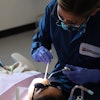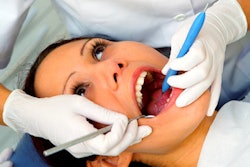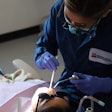
Do you think adding a dental therapist to your dental care team will help you reach the underserved communities that need access to basic oral healthcare? The Pacific University School of Dental Hygiene Studies in Oregon is trying to help you make that determination.
The school is participating in a $2 million pilot project to determine the feasibility of adding dental therapists. The program's goal is to test the professional case for this tier of dental professionals and the best training method.
"It's an opportunity to test the efficiency, cost-effectiveness, and safety of using dental therapists to perform basic dental procedures," Lisa Rowley, a faculty member and former director of the School of Dental Hygiene Studies, is quoted in the university's Pacific magazine.
Advocates believe adding dental therapists to practices will help those living in areas with severe dental care health professional shortages, according to the university. Studies have shown that more than 35% if people live in shortage areas, and another 10,800 practitioners are needed to serve them.
The project will allow Pacific University to educate two groups of students who are licensed restorative dental hygienists trained with the additional skills to become dental therapists. If the project succeeds, the university believes it could lead to the passage of a new state law, creating a middle tier of dental practitioners known as dental therapists in Oregon.
This is the first program in which its participants are licensed dental hygienists who can continue to work full-time jobs while undergoing their training. Pacific University's program is the fourth training program of its type in the U.S.
The first 10 students will begin training on February 1, 2020, according to the university. Upon completing the one-year program, students will receive certificates in dental therapy.
The project is funded by Pew Charitable Trusts, which has been a long-time advocate for licensing dental therapists to provide greater access to dental care in underserved communities; the Willamette Dental Group; and the Ford Family Foundation.
Though Rowley thinks dental therapists eventually will practice independently rather than under the supervision of dentists in some settings, this pilot program will have working hygienists practice basic dentistry at dental offices with one-on-one supervision from dentists. Dentists from the Willamette Dental Group will supervise the dentists.
Currently, 12 states in the U.S., including Alaska, Idaho, Minnesota, and Michigan, have laws that allow dental therapists to treat patients in some settings. Though dental therapists can perform many of the same preventive treatments that dental hygienists perform, as well as some procedures provided by dentists, they have not earned doctorates in dentistry.




















